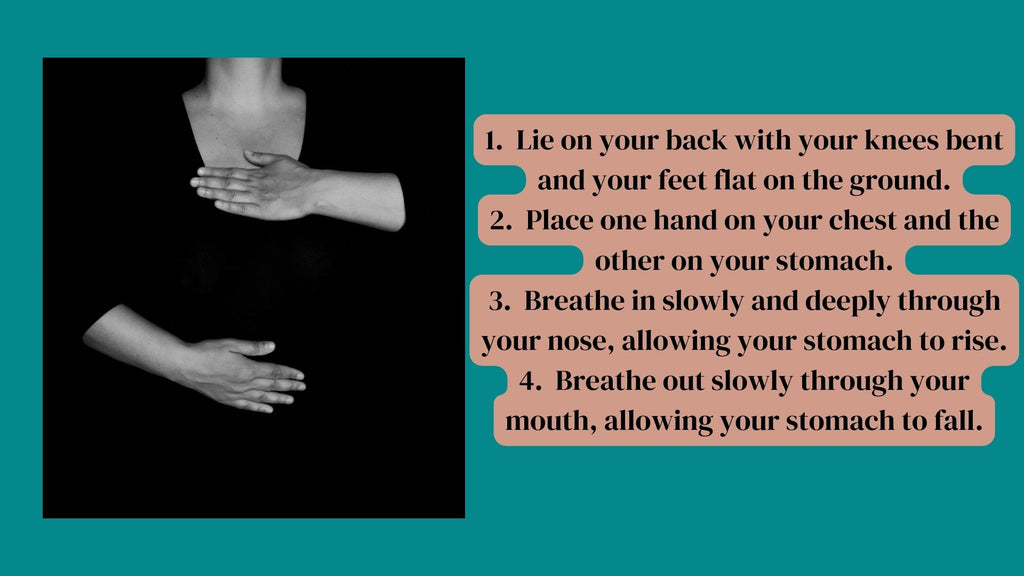The Overlooked Ally: Diaphragmatic Breathing in GERD Management
Gastroesophageal Reflux Disease (GERD) is the most common gastrointestinal condition in the United States. People with GERD often experience heartburn, coughing, and regurgitation, which can lower their overall quality of life. Typical medical management for GERD consists of medications such as PPI inhibitors and lifestyle changes.
Lifestyle changes recommended to improve GERD include elevating the head of your bed, losing weight, and increasing physical exercise. One lifestyle change that may have been overlooked is a specific form of exercise: breathing exercises that can reduce GERD symptoms.
The Diaphragm-LES Connection:
GERD results from the lower esophageal sphincter failing and allowing the stomach’s contents to regurgitate back up towards the mouth, producing the symptoms of GERD. The diaphragm surrounds the lower esophageal sphincter, the primary muscle that allows us to inhale breath. This presents a strong potential to improve LES function by strengthening the surrounding diaphragm. And how can one strengthen the diaphragm? Through breathing exercises!
Evidence-Based Benefits:
Research to date has shown promising results. For example, one clinical trial found significant improvements in quality of life and ph-metry (a measure of time the esophagus is exposed to high acidity) scores after only four weeks of practicing abdominal breathing. Those patients who continued to exercise after nine months reported an improved quality of life and a nearly 75% reduction in PPI medication use.
Meta-analyses of multiple clinical trials have concluded that breathing exercises can significantly improve pressure generated by the LES, particularly by increasing crural diaphragm tension.
A Practical Guide to Diaphragmatic Breathing:
So, we know diaphragmatic breathing can reduce GERD. But how do we do it? Here is a quick guide to the “how” of diaphragmatic breathing:
- Lie on your back with your knees bent and your feet flat on the ground
- Place one hand on your chest and the other on your stomach.
- Breathe in slowly and deeply through your nose, allowing your stomach to rise.
- Breathe out slowly through your mouth, allowing your stomach to fall.
But how long and how often should you practice? The diaphragm muscle is virtually impossible to fatigue. So frequent practice is best. One effective strategy has been incorporating diaphragmatic breathing for 10 minutes after each meal. But sometimes life gets in the way. For example, many people with GERD eat lunch during their workday, and finding 10 minutes and space to lie down at work may be impractical.

Embracing Progress, Not Perfection:
As with all forms of exercise, try to avoid an “all-or-nothing” mindset with your breathing exercises. Even if you can’t get to do the breathing exercises after every meal, do them when you can. Every bit helps and some of the time is infinitely better than nothing.
- Boulet, L. P., & Turmel, J. (2019). Cough in exercise and athletes. Pulmonary pharmacology & therapeutics, 55, 67–74.
- Chhabra, P., & Ingole, N. (2022). Gastroesophageal Reflux Disease (GERD): Highlighting Diagnosis, Treatment, and Lifestyle Changes. Cureus, 14(8), e28563.
- Eherer, A. J., Netolitzky, F., Högenauer, C., Puschnig, G., Hinterleitner, T. A., Scheidl, S., Kraxner, W., Krejs, G. J., & Hoffmann, K. M. (2012). Positive effect of abdominal breathing exercise on gastroesophageal reflux disease: a randomized, controlled study. The American journal of gastroenterology, 107(3), 372–378.
- Halland, M., Bharucha, A. E., Crowell, M. D., Ravi, K., & Katzka, D. A. (2021). Effects of Diaphragmatic Breathing on the Pathophysiology and Treatment of Upright Gastroesophageal Reflux: A Randomized Controlled Trial. The American journal of gastroenterology, 116(1), 86–94.
- Qiu, K., Wang, J., Chen, B., Wang, H., & Ma, C. (2020). The effect of breathing exercises on patients with GERD: a meta-analysis. Annals of palliative medicine, 9(2), 405–413.
- Richter, J. E., & Rubenstein, J. H. (2018). Presentation and Epidemiology of Gastroesophageal Reflux Disease. Gastroenterology, 154(2), 267–276.
- Zdrhova, L., Bitnar, P., Balihar, K., Kolar, P., Madle, K., Martinek, M., Pandolfino, J. E., & Martinek, J. (2023). Breathing Exercises in Gastroesophageal Reflux Disease: A Systematic Review. Dysphagia, 38(2), 609–621.





















Comments
Join The Conversation...